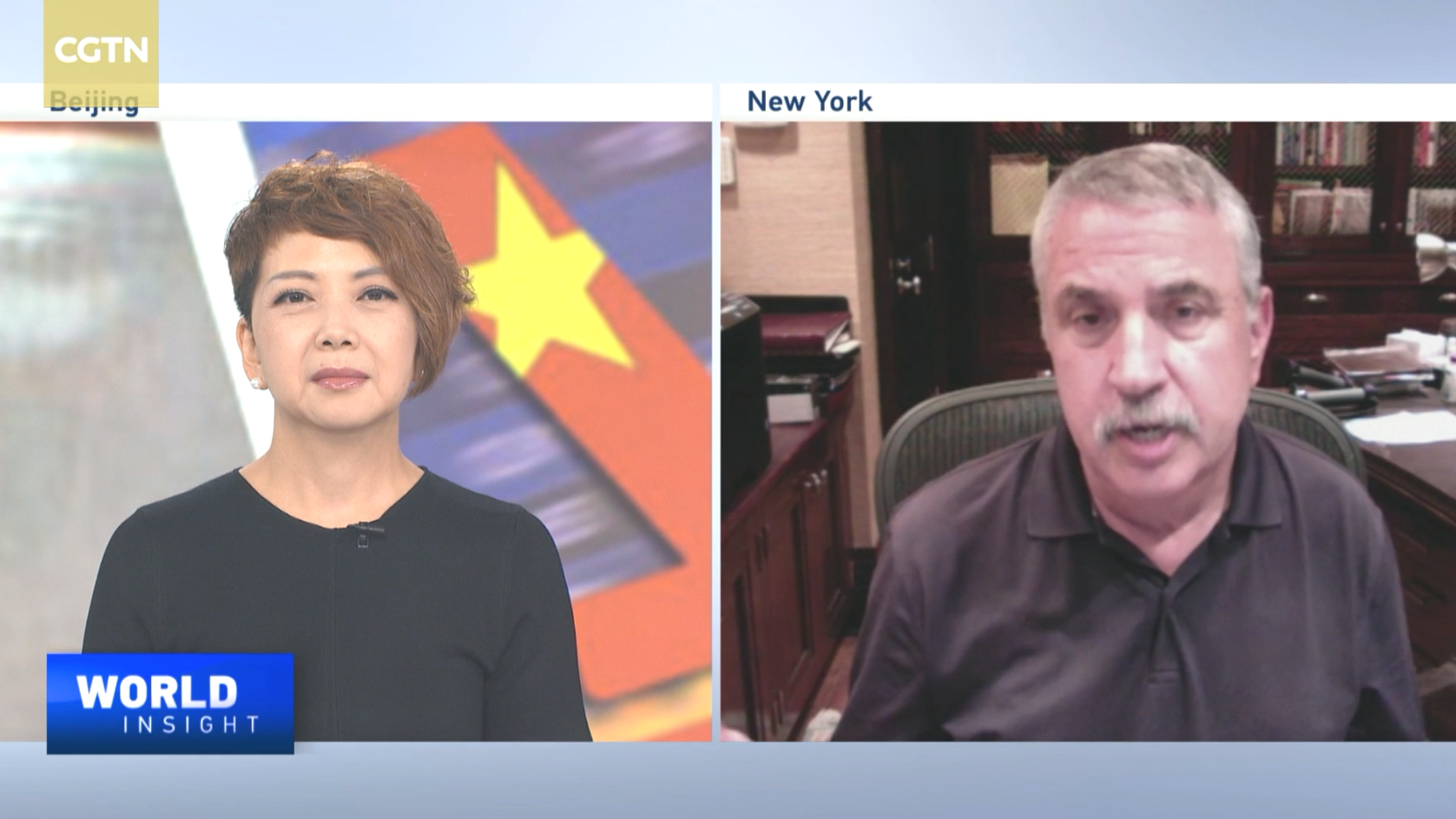00:52

Thomas Friedman's most famous work "The World Is Flat" is quintessential to understanding how our modern world is borderless. Unfortunately it is our globalized society that has allowed the COVID-19 to sweep across international and subnational boundaries. Moreover, the politics in one country will have global repercussions.
In responding to global challenges, Friedman tells CGTN host Tian Wei, that the U.S. typically plays three important roles. He says, "Firstly, the U.S. is the coordinator. Second, they will give aid to those who are harmed. Lastly, America is a source of scientific knowledge." But Friedman acknowledges that the U.S. has not played that role under Trump. The uncoordinated response by the U.S. has even prompted the EU to bar Americans travelling to Europe. Friedman says, "The U.S. not being able to coordinate the global response is very sub-optimal."
Friedman equates 2020 with the 1918 pandemic, saying: "We are in the grip of mother nature. Unless you were alive in 1918 you haven't experienced this." Friedman says, "Mother Nature doesn't reward the strongest and the smartest. She rewards the most adaptable," and adaptive qualities are respecting and coordinating against the virus. But he also asks, "Is your adaptation built on science or politics, ideology and an election cycle?" These adaptive qualities intertwine with culture. He divides the world into two types of cultures: tight cultures and loose cultures: "Tight cultures are top-down, respectful of rules, order-bound like China, Korea, Japan and Germany. Loose cultures are like the countries of the Mediterranean and the U.S. They don't follow orders well. Tight cultures do a lot better during pandemics."
Friedman has seen three adaptation strategies from countries. Unsurprisingly these adaptation strategies mirror the "tight culture/loose culture" national psyche. The first strategy has been embraced by China, South Korea and Germany, which is to use the power of the state to track, trace, and quarantine all cases. Sweden has pioneered a second strategy which is to leave the state open and get natural herd immunity. He says that the U.S. has embraced a third strategy, "Talk like we are doing the China approach. We act like we are going for Sweden's herd immunity. But we are preparing for neither."
02:06

Friedman concedes that the U.S. federal system doesn't help. "The strategy is a mess of 50 states. Some are doing it well - locking down, tracing, tracking and quarantining. Some are doing it poorly." The federal system is advantageous when dealing with economics or politics, but is unsuited for dealing with the virus. "The virus doesn't know where the border of Florida and Georgia is. This 50 state strategy doesn't work when the South has seen an exponential number of cases. But it won't stay in the South," he laments. The uncoordinated approach by the U.S. has had domestic as well as global consequences.
Friedman is perplexed why Americans are so averse to wearing masks and social distancing. He reckons that history books will not judge Trump from his initial response when there was uncertainty, rather he will be judged harshly on his current response when the science is in. "The right response is clear and easy. Everyone should wear a mask, trace and test, protect the vulnerable." But when looking at the uncoordinated response across 50 states, he is frightened at how the U.S. can't even agree on doing the easy things.
World Insight with Tian Wei is an international platform for debate and intelligent discussion. It is the meeting point of both the highly influential and rising voices, facilitated by host Tian Wei. It provides nutrition to form your own thoughts and ideas through a 45-minute live debate and interviews.
Schedule: Monday-Saturday
Time (GMT): 1415, 2015
(If you want to contribute and have specific expertise, please contact us at opinions@cgtn.com.)